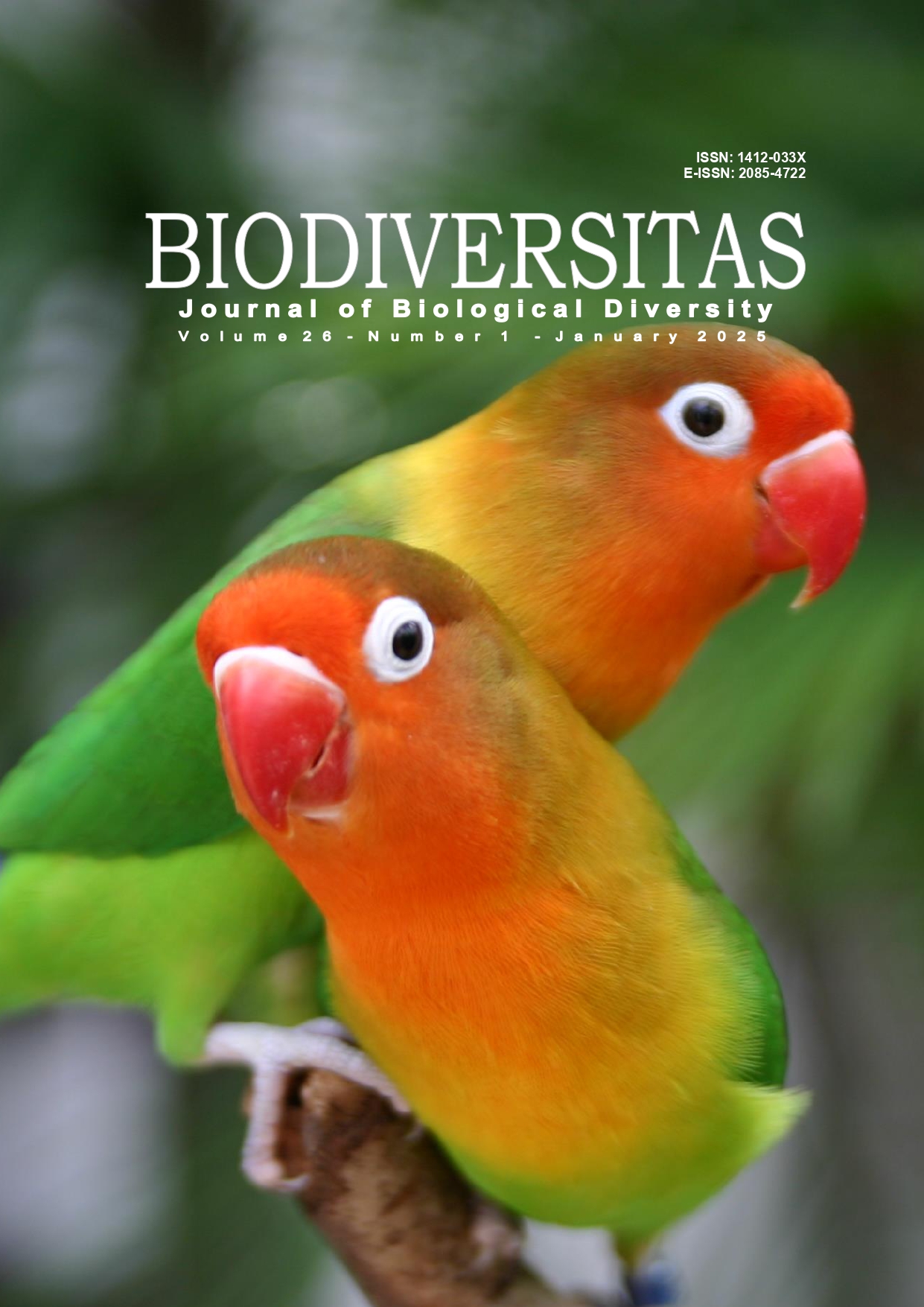Potential probiotic characteristics of Bacillus sp. originated from intensive snakehead fish (Channa striata) raising ponds in Vinh Long Province, Vietnam
##plugins.themes.bootstrap3.article.main##
Abstract
Abstract. Chi NTY, Minh NLK, Thi QVC. 2025. Potential probiotic characteristics of Bacillus sp. originated from intensive snakehead fish (Channa striata) raising ponds in Vinh Long Province, Vietnam. Biodiversitas 26: 85-93. Internal white spot disease caused by Aeromonas schubertii in snakehead fish (Channa striata) has become increasingly common and leading to significant economic losses to fish farmers. This study aimed to isolate and screen Bacillus with potential probiotic characteristics from intensively cultured snakehead fish in Vinh Long province. The results isolated 16 out of 34 Bacillus strains from pond water, sludge, and the intestine samples of snakehead fish were antagonistic against A. schubertii using the diffusion well method. In the study, strain BC2LM1 exhibited the highest antibacterial activity and was identified as Bacillus based on morphological, physiological, and biochemical characteristics, and 16S rRNA gene sequencing results. Strain BC2LM1 in this study was able to survive in media with pH ranging from 2.0 to 4.0 after 6 h of incubation. In particular, it tolerated bile salts at a concentration of 0.5% after 9 h of inoculation. The strain also demonstrated the ability to produce extracellular enzymes, including cellulase, amylase, and protease. Moreover, BC2LM1 was found to be susceptible to ampicillin/sulbactam, clindamycin, doxycycline, tetracycline, erythromycin, and levofloxacin. These findings show the potential application of Bacillus to control A. schubertii infections in intensively cultured snakehead fish in the Mekong Delta.

